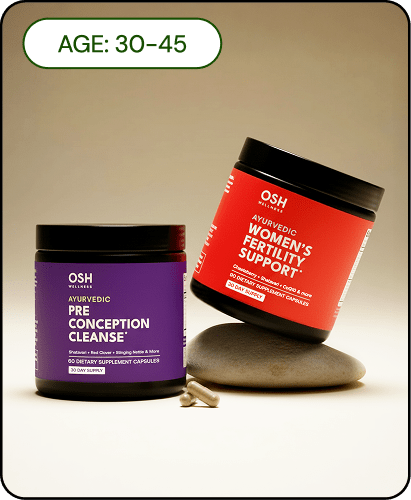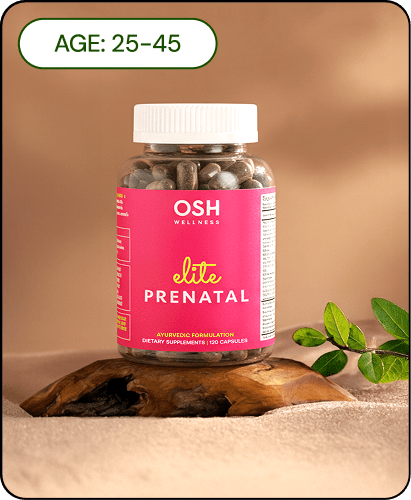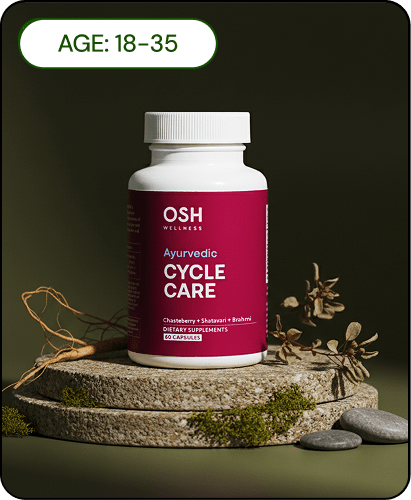Table of contents
Whether you're simply trying to find work-life balance while juggling a career and family, or you’re focused on fitness goals and maintaining your physique as you age, getting all the essential vitamins and minerals is crucial for keeping your engine running smoothly.
In today's fast-paced world, getting all the nutrients you need from food alone can be tough. That's where a good multivitamin comes in handy. It's like a one-stop shop for your nutritional needs, providing a complete package of essential micronutrients in a single pill. And let's not forget the added benefits - increased energy levels, improved cognitive function, better physical performance, and a stronger immune system.
It's important to note that men's and women's nutritional needs differ. In this blog, we'll explore the world of multivitamins specifically tailored for men's health. We'll break down the complex ingredient lists, dosages, and quality standards so you can make an informed decision on the best multivitamin for your needs.
Key Nutrients Beneficial for Men

When it comes to your health, there are a few key nutrients you'll want to make sure you're getting enough of.
1. Protein
Men generally need more protein to support muscle growth and maintenance. Aim for 0.85-1.0 grams of protein per pound of body weight per day, getting it from lean meats, eggs, dairy, and plant-based sources like beans and lentils.
2. Fiber
Another important nutrient is fiber. Fiber helps keep things, ahem, regular, and can also lower your risk of heart disease and certain cancers. Shoot for 30-38 grams per day from whole grains, fruits, veggies, and nuts.
3. Omega-3 Fatty Acids
Omega-3 fatty acids are crucial for heart and brain health. Moderate consumption of fatty fish like salmon, mackerel, and sardines a few times a week, or consider a supplement if you don't eat seafood.
4. Vitamin D, Calcium, Magnesium, and Vitamin C
Vitamin D, calcium, magnesium, and vitamin C are also important for men's health, supporting everything from bone strength to immune function. Apart from these, men performing intense workouts are prone to developing vitamin B12 deficiency, requiring increased nutrient intake.
While most try their best to ensure adequate intake of these vitamins through a balanced diet, many men find a multivitamin can help with nutritional gaps.
Benefits of Multivitamins

Multivitamins can help fill nutritional inadequacies from diet alone and provide a range of health benefits when taken as part of an overall healthy lifestyle.
1. Boost Immunity:
Multivitamins contain vitamins and minerals like A, C, E, zinc, and selenium that are critical for immune system function. These nutrients act as antioxidants, reduce inflammation and support immune cells.
2. Promote Heart Health:
Multivitamins provide nutrients like B vitamins, magnesium, calcium, niacin, and CoQ10 that are important for regulating blood pressure, maintaining healthy blood vessels, and reducing cardiovascular disease risk. A study found multivitamin use was associated with a 14% lower risk of cardiac events in healthy men [1].
3. Increase Energy Levels:
Deficiencies in B vitamins, iron, vitamin D, and other nutrients can lead to fatigue and low energy. Multivitamins help ensure adequate levels of these key nutrients for energy production and overall vitality.
4. Support Muscle Growth and Repair:
Multivitamins provide antioxidants and nutrients essential for building and repairing muscle tissue, which is especially important for active individuals and athletes.
5. Maintain Healthy Blood Pressure:
Multivitamins contain nutrients like vitamin D, potassium, and magnesium that can help lower blood pressure and reduce hypertension risk.
6. Strengthen Bones:
Multivitamins supply calcium, magnesium, vitamin D, and vitamin K, which are critical for bone density and reducing osteoporosis risk, especially in older adults.
How to Choose the Right Multivitamin For Men

Choosing the right multivitamin for men can be tricky, but it's important to get one that meets your specific needs. The key is to look for a high-quality supplement from a trusted brand with the right balance of essential vitamins and minerals.
First, check that it has the recommended daily values (DV) of nutrients like B vitamins, iron, folic acid, magnesium, and zinc. The amounts may differ for men versus women, so get one tailored for your gender.
Next, make sure it's lab-tested for heavy metals and impurities. Avoid any brands with artificial colors, preservatives, or mega-doses of vitamins A, E, or iron, which can be harmful in excess. Brands like Osh Wellness are a great option since their products are lab-certified and free from unnecessary additives.
The next thing to keep in mind is that the supplement is manufactured in the USA in an FDA-registered and certified Good Manufacturing Practices facility.
Lastly, getting into details is the key to choose a long-term supplement. The quality of ingredients is as important as the quantity. Make sure the supplement you select is using the highest quality and the most bioavailable form of every ingredient. For example, Osh Wellness Men's Fertility Support and Multivitamin uses Zinc Bisglycinate instead of less absorbable and cheaper alternatives like Zinc Sulphate.
Taking a supplement consistently with food, as directed on the label, is advisable. As is sticking with it for at least a month to feel the benefits. A quality multivitamin is an easy way to fill nutritional gaps and support your overall health.
Tips for Optimizing Multivitamin Absorption
Here are some tips to optimize the absorption of your multivitamin:
Take it with food, as nutrients are better absorbed when taken alongside other nutrients.
Choose a multivitamin with nutrients in its most bioavailable forms, like methylcobalamin for B12 and folate as methylfolate.
Avoid taking it at the same time as calcium or iron supplements, as they can interfere with the absorption of other minerals.
Liquid and powder multivitamins are absorbed faster than tablets or gummies.
Certain medications like antacids, antibiotics, and blood thinners can impair absorption, so time your multivitamins separately.
Absorption tends to decrease with age, meaning older adults may need higher doses of some nutrients like B12.
The key is choosing a high-quality multivitamin and taking it consistently as directed. Combining it with a healthy diet provides the best nutritional insurance.
Conclusion
At the end of the day, a balanced diet is the ideal way to get all the vitamins and minerals your body needs. But let's be real, with our busy lifestyles, it's not always easy to eat perfectly every single day. That's where a quality multivitamin for men can be a game-changer.
The good news is that there's no shortage of great multivitamin options. Whether you're looking for a basic daily vitamin or something more specialized, you can find a formula tailored to your specific needs and preferences.
The most important thing is to choose a high-quality, third-party-tested brand and take it consistently as directed. Before you start taking any new supplement, be sure to check with your healthcare provider, especially if you're taking other medications. They can help ensure it's safe and effective for you.
So go ahead and give your body the nutritional boost it needs with a multivitamin. Your health is worth the investment!
FAQ
Do multivitamins increase testosterone?
Multivitamin fertility support like OSH Wellness’ Men’s Fertility Support have Ayurvedic ingredients like Ashwagandha and Gokshura, which have proven to boost testosterone levels
What is the top-rated men's multivitamin?
When choosing a multivitamin, look for one that is lab certified, contains bioavailable forms of vitamins and minerals, and is formulated to meet the specific nutritional needs of men. Consulting with a healthcare provider can also help determine the best multivitamin for your individual health goals. OSH Wellness’ Men’s Fertility Support is a powerful blend of Ayurvedic botanicals, CoQ10, zinc, and multivitamins that help improve overall male health.
Can you take multivitamins and testosterone together?
Some ingredients in multivitamins, such as iron, can interact with other medications. Speak to your doctor to find out if multivitamins are the right choice for you.







